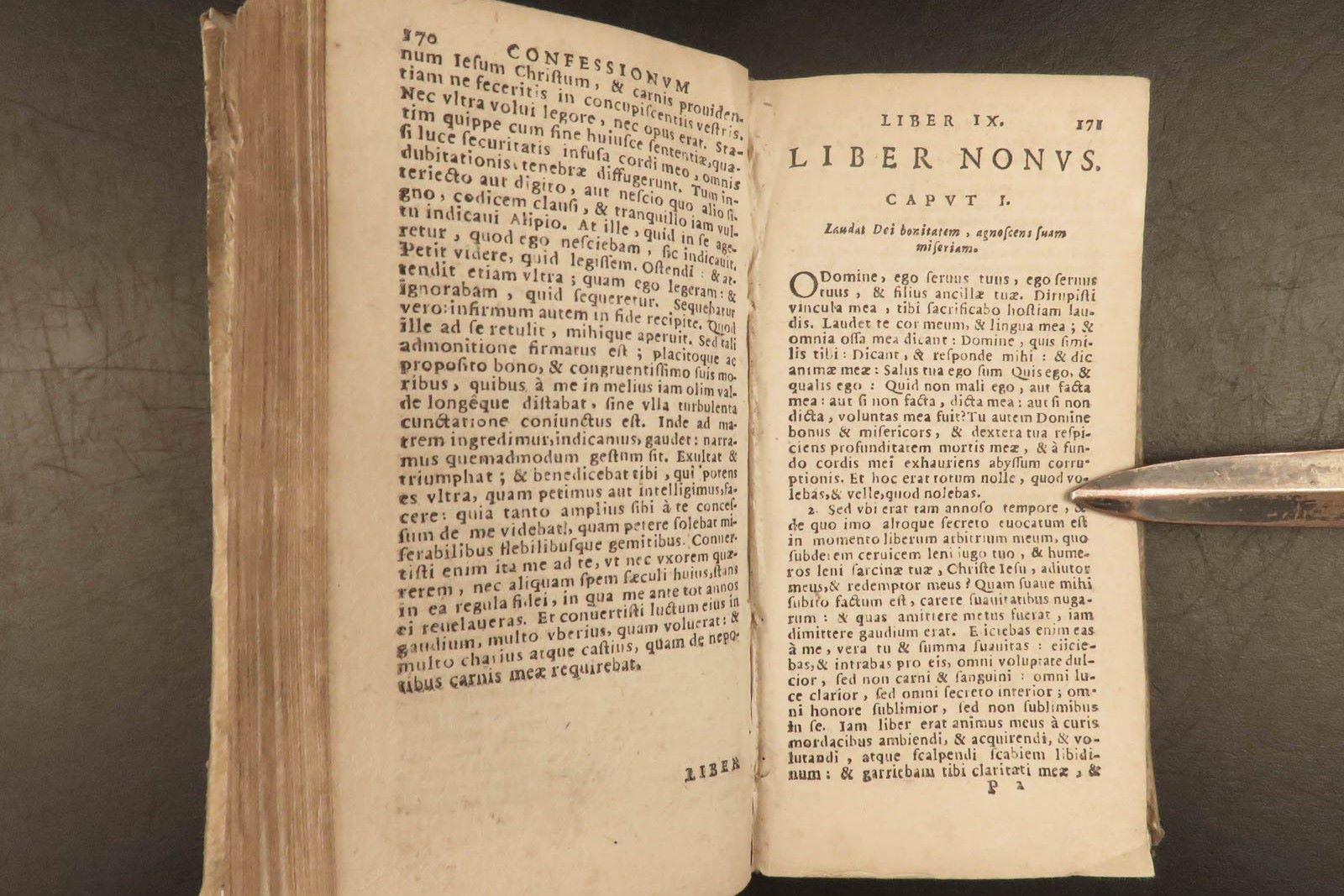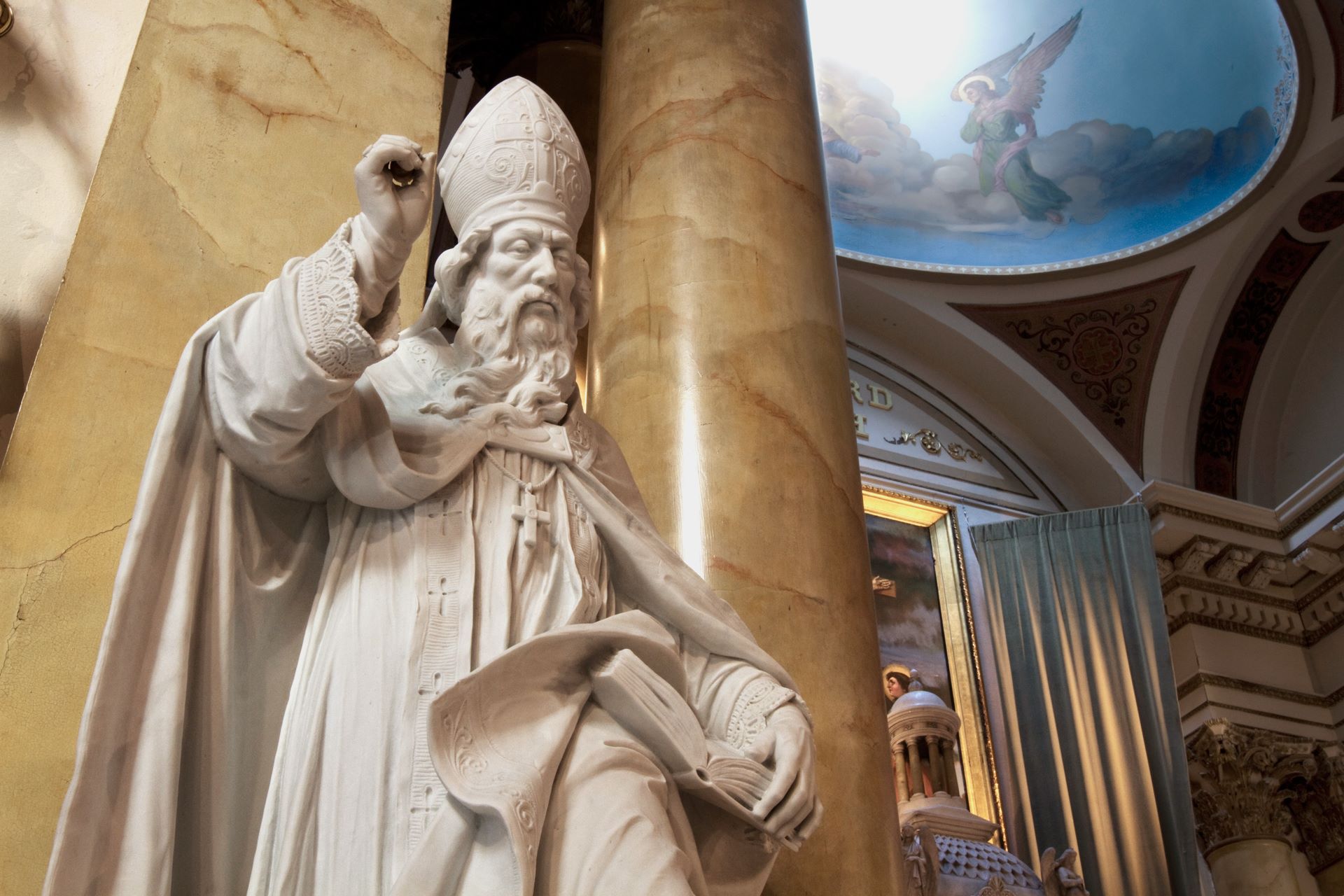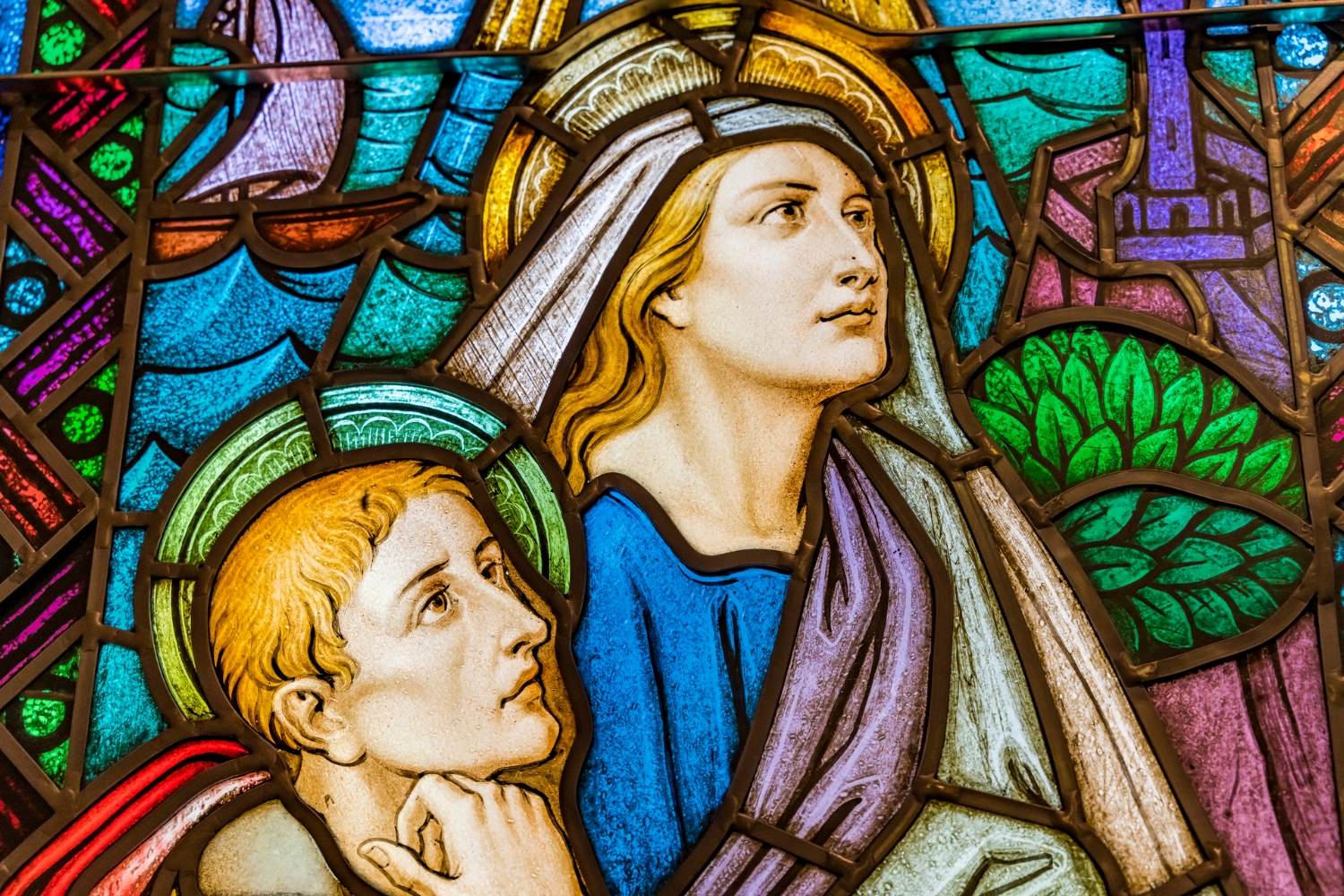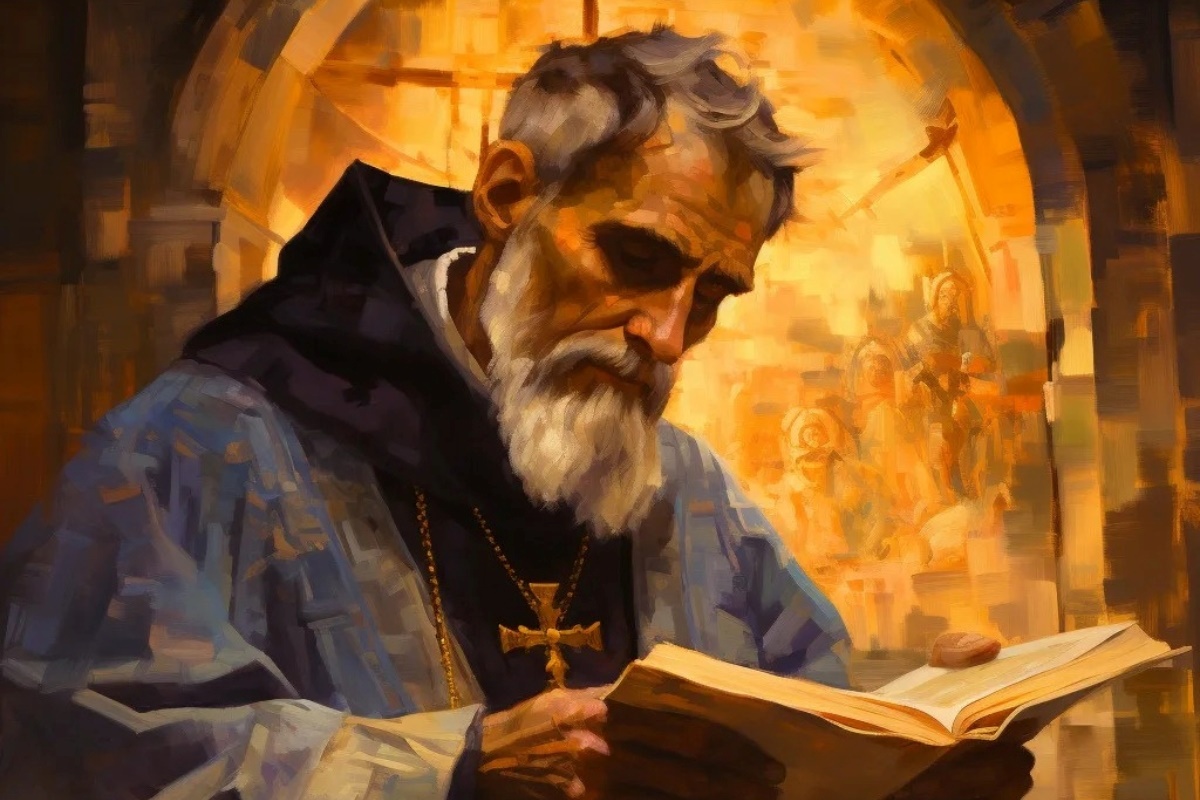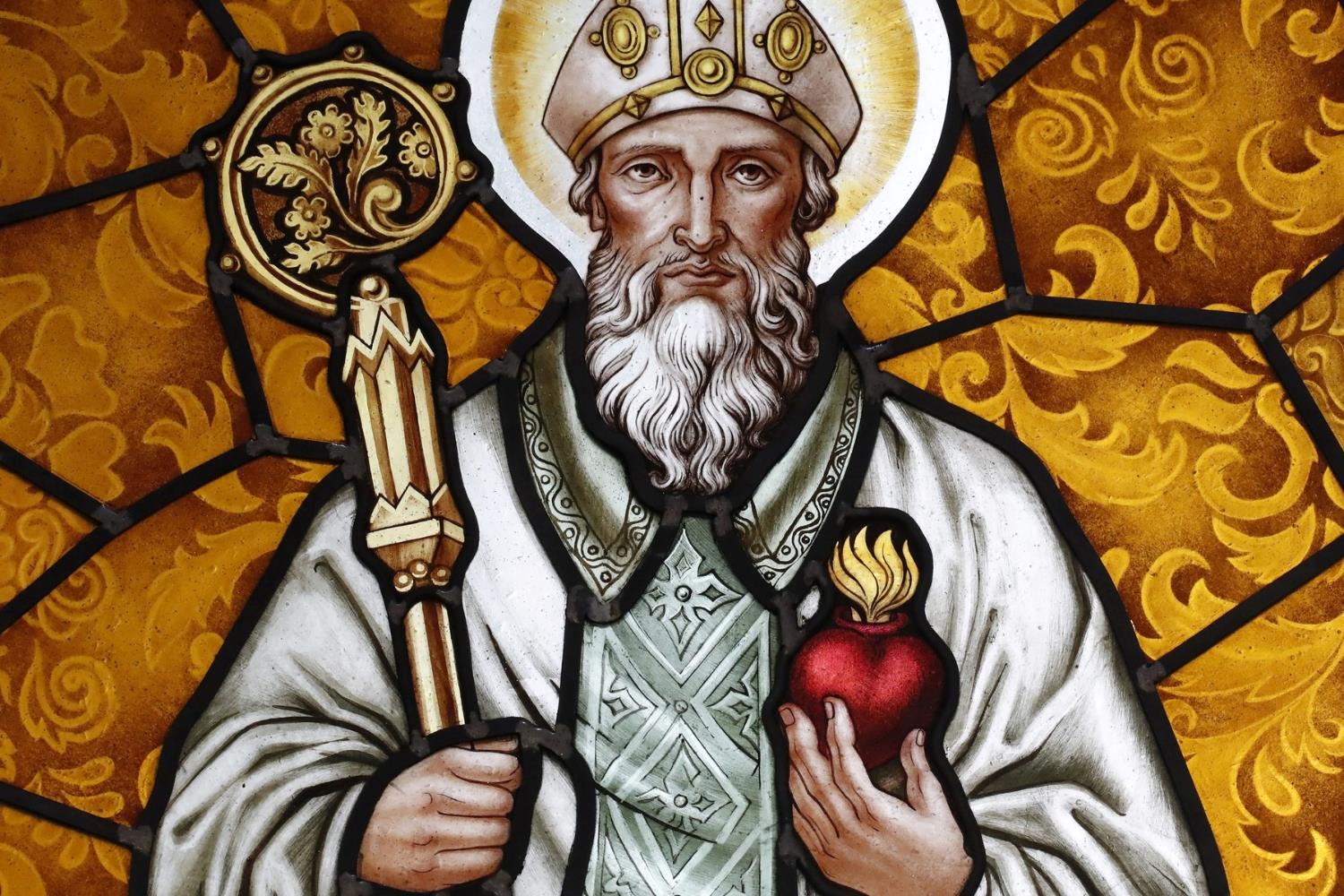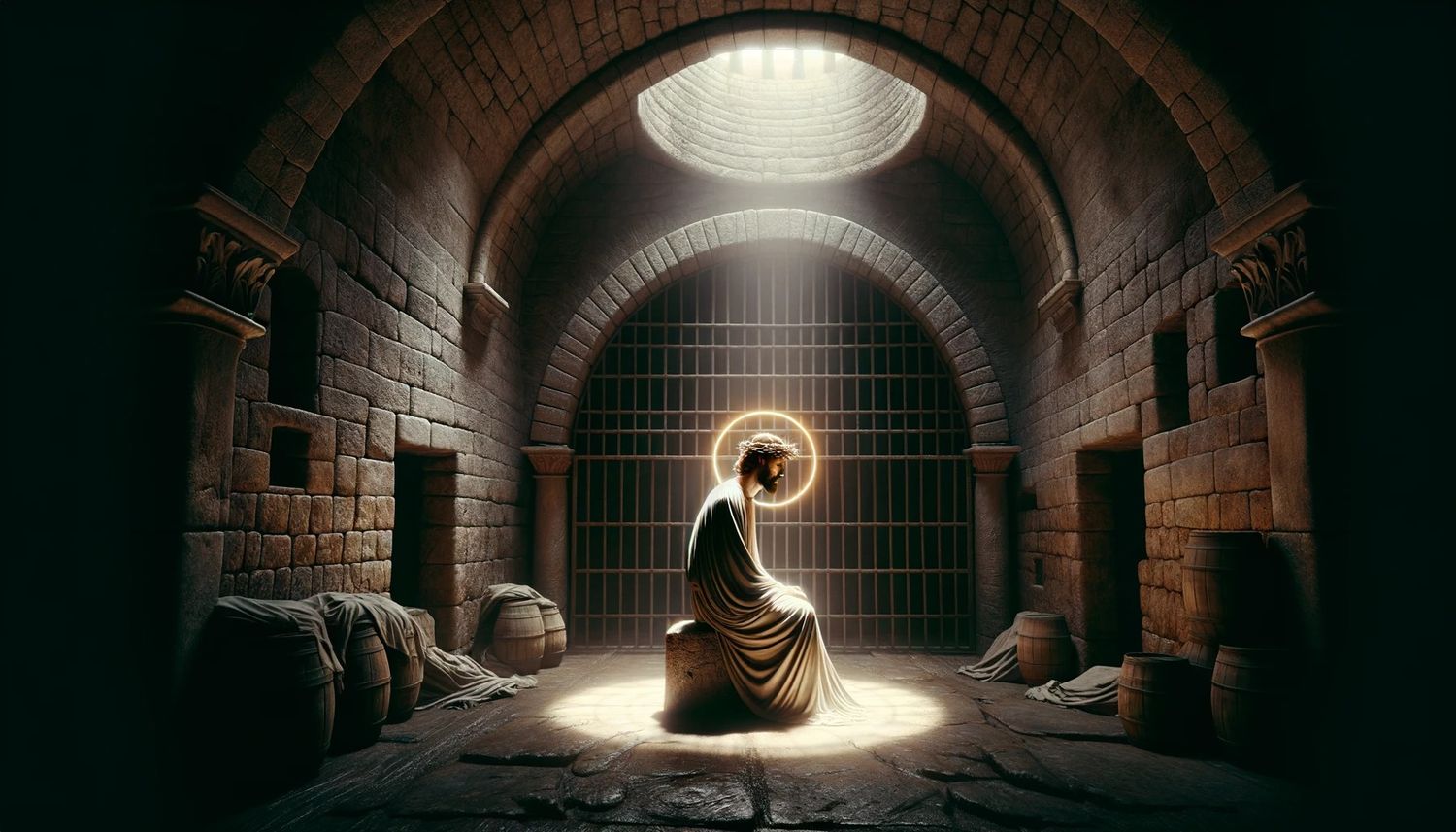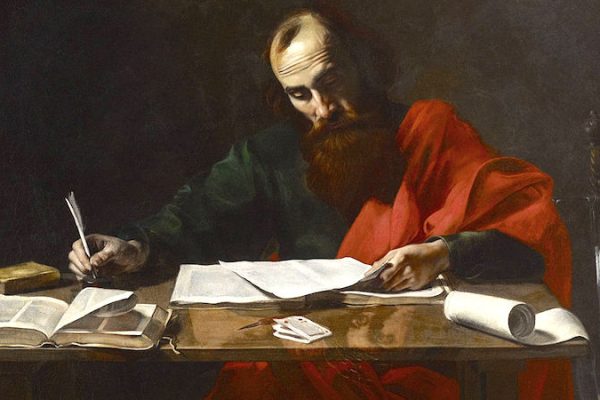Home>Theology and Spirituality>How Did Saint Augustine Of Hippo Die
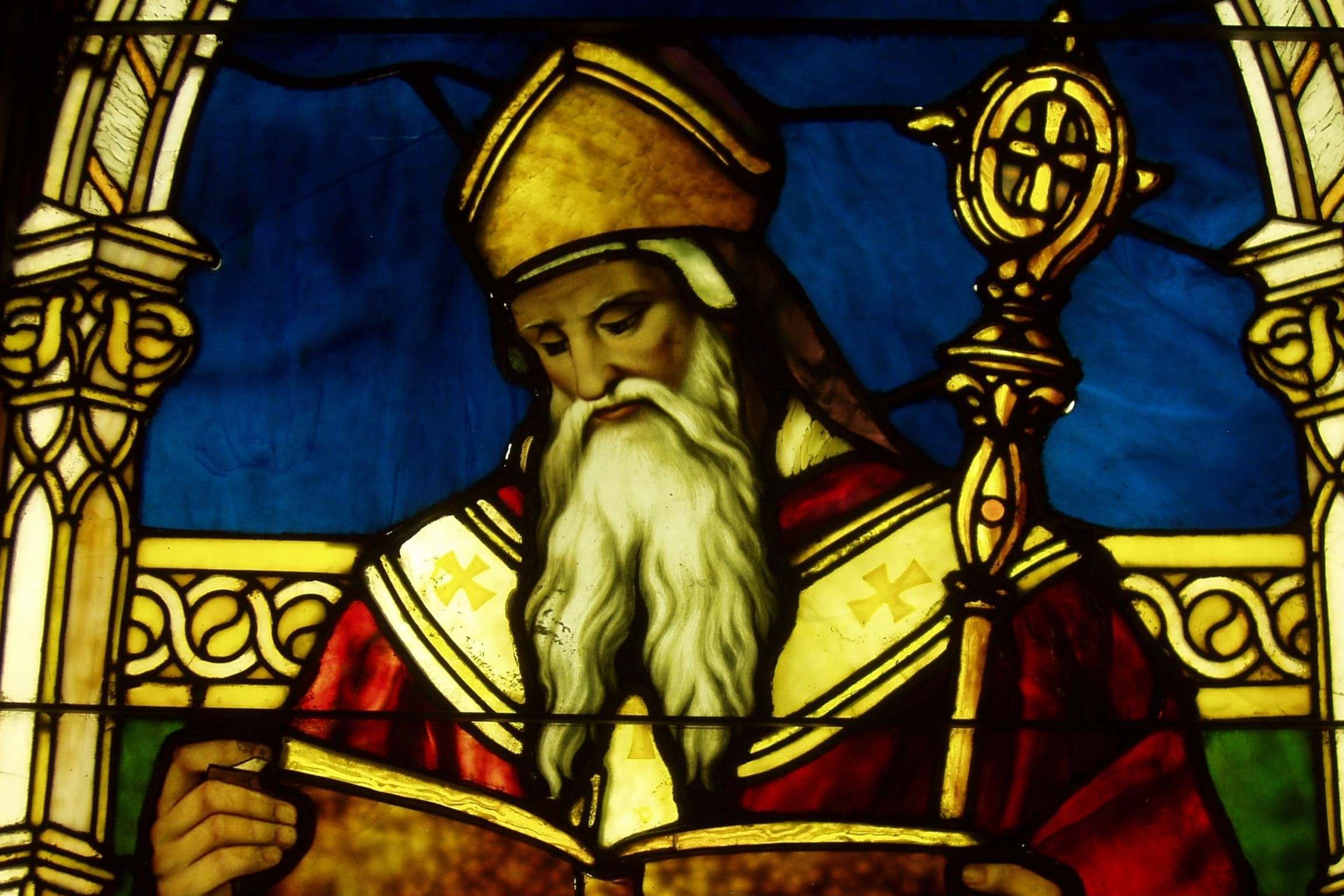

Theology and Spirituality
How Did Saint Augustine Of Hippo Die
Published: February 10, 2024
Ericka Andersen, an editor at Christian.net, expertly merges digital strategy with content creation, focusing on faith and societal issues. Her communication skills enhance the platform's engaging narratives, fostering meaningful dialogue on belief's impact on society.
Discover the circumstances surrounding the death of Saint Augustine of Hippo and its impact on theology and spirituality. Explore the legacy of this influential figure.
(Many of the links in this article redirect to a specific reviewed product. Your purchase of these products through affiliate links helps to generate commission for Christian.net, at no extra cost. Learn more)
Table of Contents
Introduction
Saint Augustine of Hippo, also known as Augustine of Hippo, was a prominent theologian, philosopher, and bishop in the early Christian church. His profound influence on Christian thought and theology has reverberated through the centuries, shaping the understanding of sin, grace, and the nature of God. Augustine's life and teachings continue to inspire and challenge believers and scholars alike, making him a pivotal figure in the history of Christianity.
Born in 354 AD in Thagaste, a Roman province in North Africa (present-day Algeria), Augustine's early years were marked by a quest for knowledge and spiritual fulfillment. His intellectual curiosity and relentless pursuit of truth led him on a transformative journey that would ultimately leave an indelible mark on Christian theology.
Throughout his life, Augustine grappled with profound questions about the human condition, the nature of evil, and the pursuit of God. His writings, particularly his autobiographical work "Confessions," provide a deeply introspective account of his struggles, doubts, and eventual conversion to Christianity. This deeply personal narrative has resonated with countless individuals across diverse cultural and religious backgrounds, offering solace and insight into the complexities of the human experience.
As we delve into the life and legacy of Saint Augustine of Hippo, we will explore the pivotal moments that shaped his theological perspectives, his enduring impact on Christian doctrine, and the profound relevance of his teachings in contemporary discussions of faith, reason, and the human soul. Join us on a journey through the life and thought of this remarkable figure, whose intellectual prowess and spiritual fervor continue to captivate and inspire seekers of truth and wisdom.
Read more: How Did Saint John The Baptist Die
Early Life and Conversion to Christianity
Augustine of Hippo's early life was marked by a fervent pursuit of knowledge and a relentless quest for spiritual fulfillment. Born in 354 AD in Thagaste, a provincial town in Roman North Africa, Augustine demonstrated intellectual curiosity and a thirst for understanding from a young age. His upbringing in a devout Christian household instilled in him a deep reverence for faith, although he initially strayed from the path of Christianity in his pursuit of worldly pleasures and intellectual pursuits.
During his formative years, Augustine embarked on a journey of philosophical exploration, seeking answers to profound questions about the nature of existence, the source of evil, and the pursuit of truth. His intellectual pursuits led him to embrace Manichaeism, a dualistic religion that captivated him with its promise of resolving the problem of evil in the world. However, despite his fervent adherence to Manichaeism, Augustine's quest for truth remained unquenched, and he continued to grapple with existential questions that plagued his innermost being.
It was during this period of spiritual restlessness that Augustine encountered the influential figure of Saint Ambrose, the Bishop of Milan. Through their interactions, Augustine was exposed to the intellectual richness of Christian thought and the profound wisdom contained within the Scriptures. The eloquence and depth of Saint Ambrose's teachings left an indelible impression on Augustine, igniting a transformative journey that would ultimately lead to his conversion to Christianity.
The pivotal moment of Augustine's conversion occurred in the garden of his friend's house in Milan. Overwhelmed by a profound spiritual and emotional turmoil, Augustine experienced a moment of divine intervention that shattered the barriers of his skepticism and intellectual pride. In a moment of profound clarity and surrender, he heard a child's voice chanting "Take up and read," prompting him to open the Scriptures and encounter the words that would forever change the course of his life.
As Augustine's eyes fell upon the words of the apostle Paul, his heart was flooded with a transcendent illumination, and the seeds of faith that had been sown by Saint Ambrose blossomed into a profound and unwavering commitment to Christ. This transformative encounter marked the culmination of Augustine's arduous spiritual journey, leading him to embrace the Christian faith with a fervor and conviction that would shape the trajectory of his life and intellectual pursuits.
The story of Augustine's conversion stands as a testament to the transformative power of divine grace and the relentless pursuit of truth. His journey from spiritual restlessness to profound faith continues to resonate with seekers and believers, offering a compelling narrative of redemption and enlightenment that transcends the boundaries of time and culture. Augustine's conversion to Christianity not only marked a personal transformation but also laid the foundation for his enduring legacy as one of the most influential figures in Christian theology and philosophy.
Role as Bishop of Hippo
Elevated to the esteemed position of Bishop of Hippo in 396 AD, Augustine assumed a pivotal role in shepherding the Christian community and shaping the theological landscape of the region. As a bishop, Augustine undertook multifaceted responsibilities that extended beyond the confines of ecclesiastical duties, encompassing pastoral care, theological instruction, and the defense of Christian doctrine.
At the heart of Augustine's episcopal tenure was his unwavering commitment to nurturing the spiritual well-being of his flock. He approached his pastoral duties with compassion, wisdom, and a profound understanding of the human condition, seeking to guide and support the members of his congregation through the complexities of faith and life. Augustine's pastoral letters and sermons reflect his deep empathy and pastoral sensitivity, addressing a wide array of spiritual and moral concerns with clarity and insight.
In addition to his pastoral endeavors, Augustine emerged as a formidable defender of orthodox Christian doctrine, engaging in theological debates and polemical discourses to safeguard the integrity of the faith. His erudition and intellectual acumen positioned him as a leading figure in the theological controversies of his time, particularly in combating the heresies of Donatism and Pelagianism. Augustine's theological treatises and writings served as bulwarks against doctrinal deviations, articulating the nuances of Christian belief with precision and eloquence.
Furthermore, Augustine's episcopal leadership extended to the realm of social and political engagement, where he advocated for justice, compassion, and the ethical responsibilities of governance. His influential treatise "The City of God" addressed the complex interplay between the earthly realm and the divine order, offering profound insights into the nature of human society and the transcendent purposes of God's providence. Augustine's vision of a harmonious society guided by moral principles and divine wisdom continues to resonate with contemporary discussions on the intersection of faith and public life.
Throughout his tenure as Bishop of Hippo, Augustine exemplified the virtues of humility, intellectual rigor, and unwavering devotion to the Christian faith. His profound impact on the ecclesiastical, theological, and societal realms endures as a testament to the enduring legacy of his episcopal leadership. Augustine's role as a shepherd, theologian, and advocate for spiritual and moral integrity continues to inspire and guide individuals and communities, underscoring the timeless relevance of his episcopal legacy in the annals of Christian history.
Theological and Philosophical Contributions
Augustine of Hippo's theological and philosophical contributions have left an indelible mark on Christian thought, shaping the contours of doctrinal understanding and philosophical inquiry for centuries. At the heart of Augustine's intellectual legacy lies his profound exploration of theological themes, philosophical inquiries, and the intricate interplay between faith and reason.
Central to Augustine's theological framework is his profound elucidation of the doctrine of original sin and the fallen nature of humanity. His seminal work "The Confessions" offers a deeply introspective account of the human condition, grappling with the complexities of sin, redemption, and the transformative power of divine grace. Augustine's nuanced articulation of the inherent moral frailty of humanity and the redemptive agency of Christ has profoundly influenced Christian soteriology, providing a theological foundation for understanding the universal need for salvation and the transformative work of God's grace in the human soul.
Furthermore, Augustine's philosophical inquiries delved into profound metaphysical and epistemological questions, seeking to reconcile the tensions between faith and reason. His magnum opus "The City of God" stands as a monumental treatise that expounds on the nature of the earthly city and the heavenly city, offering a comprehensive vision of the divine order and the moral dimensions of human society. Augustine's philosophical reflections on the nature of time, memory, and the human will have engendered profound discussions in the realms of metaphysics and ethics, shaping the contours of Western philosophical thought and theological discourse.
Moreover, Augustine's elucidation of the doctrine of divine sovereignty and predestination has engendered extensive theological debates and reflections on the nature of God's providence and human agency. His profound engagement with the complexities of divine foreknowledge and human free will has spurred multifaceted discussions within Christian theology, contributing to the development of diverse theological perspectives on the interplay between divine sovereignty and human responsibility.
In essence, Augustine's theological and philosophical contributions stand as a testament to the enduring relevance of his intellectual legacy, offering profound insights into the complexities of human existence, the nature of God, and the transformative power of faith. His profound impact on Christian theology and Western philosophy continues to resonate with scholars, theologians, and seekers of wisdom, underscoring the timeless significance of his theological and philosophical inquiries in the annals of intellectual history.
Death and Legacy
The culmination of Augustine of Hippo's earthly journey occurred in 430 AD, marking the transition of a towering figure whose intellectual prowess and spiritual fervor had indelibly shaped the landscape of Christian thought. Augustine's passing reverberated across the Christian world, leaving an enduring legacy that continues to inspire and challenge generations of believers and scholars.
Upon his death in Hippo Regius, the city mourned the loss of a luminary whose profound impact transcended the confines of his episcopal see. Augustine's theological and philosophical contributions had permeated the intellectual milieu of the Christian world, engendering profound discussions on sin, grace, and the nature of God. His writings, particularly "The Confessions" and "The City of God," stood as timeless testaments to the depths of human experience and the transcendent truths of the Christian faith.
The legacy of Augustine of Hippo extends far beyond the realm of theological discourse, encompassing his enduring influence on the development of Western philosophy, ethics, and the pursuit of wisdom. His profound reflections on the complexities of human existence, the nature of time, and the moral dimensions of society continue to resonate with scholars and thinkers, offering profound insights into the perennial questions that have captivated the human intellect across the ages.
Furthermore, Augustine's legacy as a compassionate shepherd and unwavering defender of Christian orthodoxy endures as a testament to the enduring impact of his episcopal leadership. His pastoral letters, sermons, and theological treatises continue to guide and inspire individuals and communities, offering timeless wisdom and pastoral sensitivity that transcends the boundaries of time and culture.
The enduring legacy of Augustine of Hippo serves as a beacon of intellectual rigor, spiritual fervor, and unwavering commitment to the pursuit of truth. His profound impact on Christian theology, philosophy, and ecclesiastical leadership continues to shape the contours of intellectual discourse and spiritual inquiry, underscoring the enduring relevance of his legacy in the annals of human history.
In essence, Augustine's death marked the culmination of a life dedicated to the relentless pursuit of wisdom, the unwavering commitment to the Christian faith, and the enduring legacy that continues to illuminate the path of seekers and believers across the expanse of time. His legacy stands as a testament to the transformative power of faith, the pursuit of truth, and the enduring relevance of his intellectual and spiritual contributions in the annals of human history.
